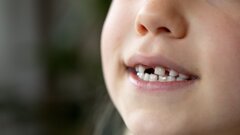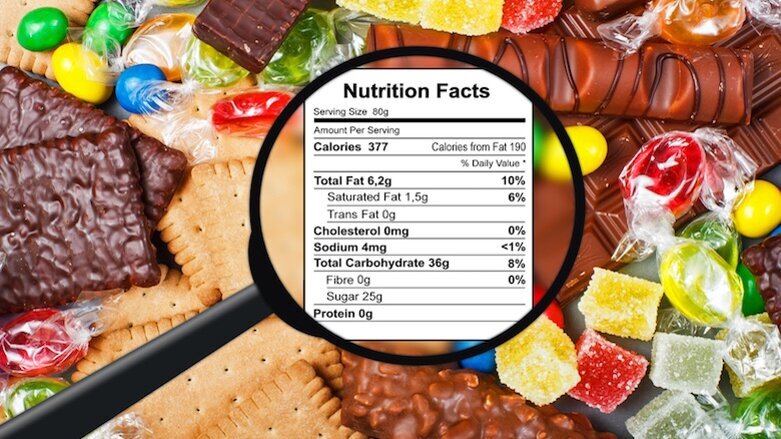LEIPZIG, Germany: The global obesity epidemic shows few signs of abating, and numerous countries from different regions have introduced policies aimed at reducing its impact. One of these countries is Chile, whose adoption of a strict warning system for the labelling of food and beverages high in sugar, fat or salt cut purchases of these products by almost a quarter over an 18-month period, according to a recent study.
In 2016, Chile brought the law of food labelling and advertising into effect. It encompasses a range of policies that subject unhealthy foods and beverages to certain marketing restrictions, particularly in relation to advertising aimed at children. Furthermore, the regulation bans the sale of such food and drink at schools and includes a mandatory front-of-packaging warning label system that clearly states, with the assistance of black stop signs, whether a product contains excessive amounts of sugar, sodium, saturated fats or energy.
According to the study’s findings, the regulation’s introduction led to a 23.7% reduction in purchases of sugar-sweetened beverages (SSBs) in the country, while a 5% increase in sales of bottled water, diet soft drinks and fruit juices without added sugar was recorded. In addition, another study published in Public Health Nutrition found that Chilean children’s exposure to unhealthy food and drink advertisements decreased by 58% on average.
“An effect this big at the national level in the first year is unheard of,” Dr Lindsey Smith Taillie, lead author of the study and a nutrition epidemiologist at the University of North Carolina at Chapel Hill, told the New York Times.
“It is a very promising sign for a set of policies that mutually reinforce one another. This is the way we need the world to go to begin to really combat preventable diseases like obesity, hypertension and diabetes,” she added.
Though Chile’s approach has thus far proved to be extremely fruitful, it is not the only country by far attempting to reduce its populace’s intake of sugar and other unhealthy ingredients. In England, the April 2018 introduction of the Soft Drinks Industry Levy—commonly known as the sugar tax—was primarily responsible for a 28.8% decrease in the sugar content per 100 ml of carbonated beverages. Similarly, the 2014 implementation of a tax on SSBs in Mexico led to a 6.3% reduction in SSB purchases and a 16.2% increase in bottled water purchases, according to a study in the Journal of Nutrition.
The success of the law’s introduction in Chile has led the New Zealand Dental Association (NZDA) to press for its country’s government to adopt similar policies. “The idea of a levy on sugary drinks is widely talked about, but what this study shows is that other measures can have an impact on sugary drink consumption too,” said NZDA sugary drinks spokesperson Dr Rob Beaglehole.
“The success also of warning labels tells us that both a teaspoon icon showing the number of teaspoons of sugar in a drink, and warning labels which highlight the tooth decay, obesity, and diabetes risks that high-sugar drinks pose can lead to reduced sugary drink consumption and harm,” he added.
“The Australian Dental Association [ADA] endorses the use of a sugar-sweetened beverage tax,” Dr Michael Foley, chair of the ADA’s Oral Health Committee, told Dental Tribune International.
“The ADA supports any public health measures designed to reduce Australia's high sugar consumption. Strong public health measures, including cigarette tax, plain packaging and alcohol tax, have been shown to influence purchases, and evidence around the world suggests that a tax on sugar-sweetened beverages does too,” Foley concluded.
The study, titled “An evaluation of Chile’s law of food labeling and advertising on sugar-sweetened beverage purchases from 2015 to 2017: A before-and-after study”, was published online on 11 February 2020, in PLOS Medicine.
Tags:
BERLIN, Germany: There is increasing demand for CAT for mild to moderate malocclusion in adults. However, there is a lack of information on the motivations ...
135,000 visitors from 156 countries, more than 15 percent visitor growth rise, high international visitor turnout, and high-quality exhibitors with higher ...
People that traditionally exhibit vitamin D deficiency, such as older adults and nursing home residents, are the same groups that have also been excessively...
Healthcare workers (HCWs) spend a lot of time up working in close proximity to their patients, which is a high-risk activity. Standard Personal Protective ...
Every year, more than 400 million tonnes of plastic are manufactured around the globe. Over 300 million tonnes of plastic end up in landfills, with 11 ...
This guest editorial by Dr Manuela Buonanno summarizes the current research on characterizing the anti-microbial effectiveness of far-UVC light - mainly the...
Every year the 31st of May is observed as the World No Tobacco Day around the world to educate people about the ill effects of tobacco and to help them kick...
New Delhi: While Inaugurating Delhi Smiles” Dental Health Utsav, Deputy Chief Minister Manish Sisodia announced that New Delhi is set to get around ...
New Delhi: While Inaugurating Delhi Smiles” Dental Health Utsav, Deputy Chief Minister Manish Sisodia announced that New Delhi is set to get around ...
Live webinar
Wed. 4 February 2026
5:30 am IST (New Delhi)
Live webinar
Wed. 4 February 2026
9:30 pm IST (New Delhi)
Live webinar
Fri. 6 February 2026
1:00 am IST (New Delhi)
Dr. Boota Ubhi BDS, FDS RCS (Edin), MDentSci, MRD RCS (Eng) Specialist, Cat Edney
Live webinar
Fri. 6 February 2026
6:30 am IST (New Delhi)
Dr. Zeeshan Sheikh Dip.Dh, BDS MSc, M.Perio, PhD, FRCDC, Dip-ABP
Live webinar
Wed. 11 February 2026
5:30 am IST (New Delhi)
Prof. Dr. Wael Att, Dr. Robert A. Levine DDS, FCPP, FISPPS, AOD, Dr. Larissa Bemquerer ITI Scholar at Harvard
Live webinar
Wed. 11 February 2026
9:30 pm IST (New Delhi)
Dr. med. dent. Sven Mühlemann
Live webinar
Wed. 11 February 2026
10:30 pm IST (New Delhi)
Prof. Dr. Samir Abou Ayash



 Austria / Österreich
Austria / Österreich
 Bosnia and Herzegovina / Босна и Херцеговина
Bosnia and Herzegovina / Босна и Херцеговина
 Bulgaria / България
Bulgaria / България
 Croatia / Hrvatska
Croatia / Hrvatska
 Czech Republic & Slovakia / Česká republika & Slovensko
Czech Republic & Slovakia / Česká republika & Slovensko
 France / France
France / France
 Germany / Deutschland
Germany / Deutschland
 Greece / ΕΛΛΑΔΑ
Greece / ΕΛΛΑΔΑ
 Hungary / Hungary
Hungary / Hungary
 Italy / Italia
Italy / Italia
 Netherlands / Nederland
Netherlands / Nederland
 Nordic / Nordic
Nordic / Nordic
 Poland / Polska
Poland / Polska
 Portugal / Portugal
Portugal / Portugal
 Romania & Moldova / România & Moldova
Romania & Moldova / România & Moldova
 Slovenia / Slovenija
Slovenia / Slovenija
 Serbia & Montenegro / Србија и Црна Гора
Serbia & Montenegro / Србија и Црна Гора
 Spain / España
Spain / España
 Switzerland / Schweiz
Switzerland / Schweiz
 Turkey / Türkiye
Turkey / Türkiye
 UK & Ireland / UK & Ireland
UK & Ireland / UK & Ireland
 International / International
International / International
 Brazil / Brasil
Brazil / Brasil
 Canada / Canada
Canada / Canada
 Latin America / Latinoamérica
Latin America / Latinoamérica
 USA / USA
USA / USA
 China / 中国
China / 中国
 Pakistan / Pākistān
Pakistan / Pākistān
 Vietnam / Việt Nam
Vietnam / Việt Nam
 ASEAN / ASEAN
ASEAN / ASEAN
 Israel / מְדִינַת יִשְׂרָאֵל
Israel / מְדִינַת יִשְׂרָאֵל
 Algeria, Morocco & Tunisia / الجزائر والمغرب وتونس
Algeria, Morocco & Tunisia / الجزائر والمغرب وتونس
 Middle East / Middle East
Middle East / Middle East



























































To post a reply please login or register